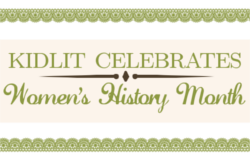March 24 - Today's post provided by Ruth Tenzer Feldman
"Daughters of Zelophehad." That's how you might research them. That's how they are known. But, just like every father's daughter, each of these five women has a name. Here's my English approximation of the Hebrew names as they written in the Bible: Tirtzah, Hoglah, Milcah, Noa, and Makhlah.
Were they real women in ancient history or archetypal characters of legend? Who knows? What ignites my imagination me is that these five found themselves on a banner in one of the first parades for woman suffrage in the United States.
Picture Boone, Iowa, just before lunch hour on October 29, 1908. The women are gathered in front of the Universalist Church, the wind blowing dust in their faces as they walk behind a band. Among them are two women ministers: Anna Howard Shaw, president of the National American Woman Suffrage Association (NAWSA), and Eleanor Gordon, president of the Iowa Equal Suffrage Association and the parade's organizer.
According to her later recollections, Gordon was tired of the "dreary meetings" of local suffragists. "We listened to an earnest paper written by an earnest woman, read in an earnest manner, giving good and sufficient reasons why women were entitled to vote." She decided that: "Something must be done and done quickly or we shall learn to hate the whole business."
Toward the back of the parade is the banner which forms the foundation of Blue Thread, my venture into young adult historical fiction/fantasy based on the woman suffrage campaign in Oregon in 1912. This close-up shows you a bit more.
The banner reads:
LIKE THE DAUGHTERS OF ZELOPHEHAD, WE ASK FOR OUR INHERITANCE
The Boone banner isn't an isolated reference. The woman suffrage movement embraced the story of these five sisters (which is how I see them). For example, in the 1899 annual meeting of NAWSA, Carrie Chapman Catt included this in her proposed letter to Congress for a voting-rights amendment: "As the daughters of Zelophehad appealed to Moses and his great court for justice, so do the daughters of America appeal to you."
In Blue Thread, Miriam, my fictional girl from 1912, meets my fictional version of Tirtzah. The oldest of the five sisters (in my imagination), Tirtzah is betrothed and thus partially secure, but she explains: "Our father is dead. We have no brothers. My mother is powerless. We have no one and nothing. I will not let my sisters be taken into servitude." Tirtzah's fear is not unlike those of many women throughout the millennia. Without property or male protection they are vulnerable to destitution.
In the biblical narrative, all five women get their inheritance only if they agree to marry within their tribe. Not the way I would have liked the story to end, but still a step forward, still worthy of a place in a suffrage parade so many generations later.
The Boone parade happened twice; once in 1908, and once as a re-enactment in 2008. I don't know if someone carried a "daughters of Zelophehad" banner in the re-enactment, but I'd like to think that these five sisters are with us whenever we seek their inspiration as we step forward to pursue justice.
Editor's Note: Ruth Tenzer Feldman has a passion for history. She has written ten nonfiction books for children and young adults and is working on a sequel to Blue Thread that intertwines the civil rights/free speech moment of 1964 with the First Crusade (1096-1099). Read more at www.bluethreadbook.com and www.ruthtenzerfeldman.com.


















An interesting way to take history - the marches - & mysterious information that no one knows about today - & blend them for a novel.
ReplyDelete